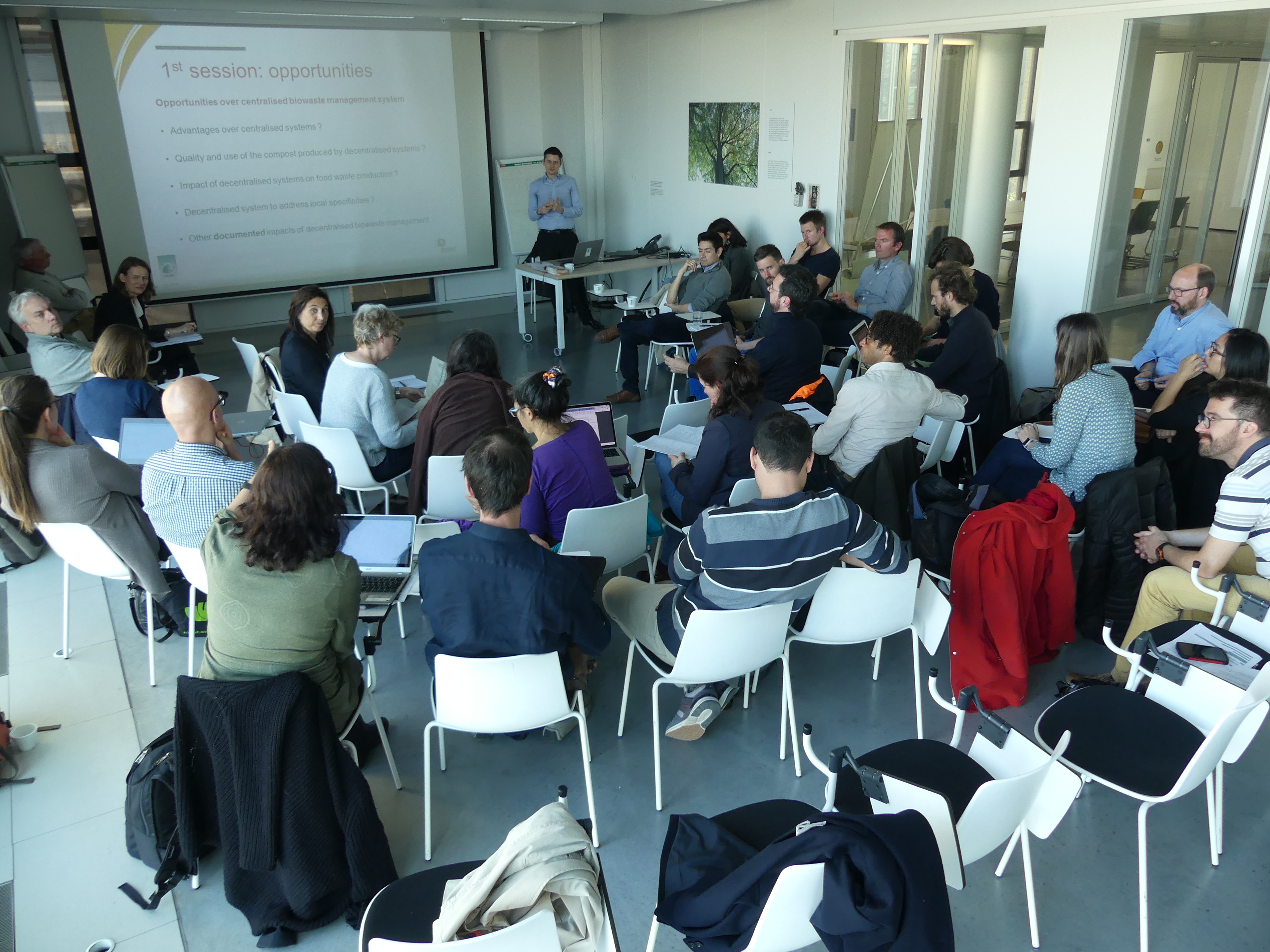As a part of the 5th General Assembly, ACR+ with the kind support of Brussels Environment, organised the first Focus Group the day before in order toassess the barriers and opportunities in terms of both policies and economics for the development of decentralised biowaste systems.
The Focus group brought together not only representatives of the consortium but also other international projects, initiatives and research institutes who brought their experiences and positive or negatives stories they have in the field of decentralised biowaste management. Reinforced by the local support coming from Brussels and being the frontrunners in decentralised biowaste management locally such as Worms, Operation Phospore, Free University of Brussels and Brussels Environment, the Focus Group also attracted attention from valuable contributors from abroad. The London based mAD plant, which is a part of the local LEAP project and the French Bee&Co and their prototype of a micro AD unit came with their own achievements and difficulties they are facing in the deploymnet of their respective technologies and equipment. The Focus Group also attracted participants from the Italian Compost Association, Urban Farming Company and BCN Ecologia, as well as certain cities like the German city of Hamburg.
After ACR+’s introduction to the Focus Group and Anne Termier of Irstea, the project coordnator’s, introduction to the project itself, Operation Phospore and Stephan Kampelman provided a valuable insight in how Brussels brought together all relevant actors – from NGOs, academia, waste management companies to local and regional authorities, creating a platform that enables options to be explored and tested before defining advantages and disadvantages of centralised and decentralised, but also small and large scale solutions. This was indeed what followed the presentation – participants discussing these comparisons. The overall opinion was that different solutions don’t need to compete with each other but rather be complementary for maximising the valorisation of available resources. Rosaria Chifari of Fundacio ENT later presented the overview of European and national regulations which directly and indirectly support or hinder the development of such technologies.
Such a Focus Group will be organised once again, in Brussels or elsewhere and will explore policy recommendations which could drive the development of decentralised biowaste management schemes forward.

